The largest organ we have is our skin. Skin protects us from sunlight, heat, infection, and injury.
According to the National Cancer Institute, it also stores water, vitamin D, and fat. Skin cancer, according to the Skin Cancer Foundation is caused by damage to DNA of skin cells – which is the result of ultraviolet radiation from either the sun or tanning beds.
Basically, your skin cells are abnormal, and they grow uncontrollably.
MedlinePlus says that anyone can get skin cancer and it is the most common cancer in the United States.
There are many types of cancer, but melanoma is the most dangerous.
Melanoma will present itself as a change in color, shape, size, or feel of a mole.
Melanomas may appear black-blue or black, and may be abnormal and ‘ugly.’
In Austin, Texas, Bethany Gambardella-Greenway, 39, saw a dark spot on her skin in 2015 when she was pregnant.
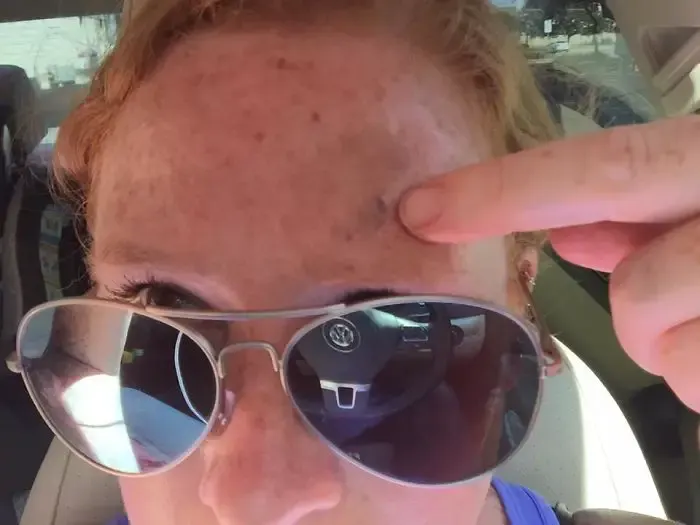
Image Credit: Bethany Gambardella-Greenway / Facebook
She thought the spot was the result of hormonal changes and didn’t get it checked out.
When she finally went to the doctor, the dermatologist told her that it was just a liver spot.
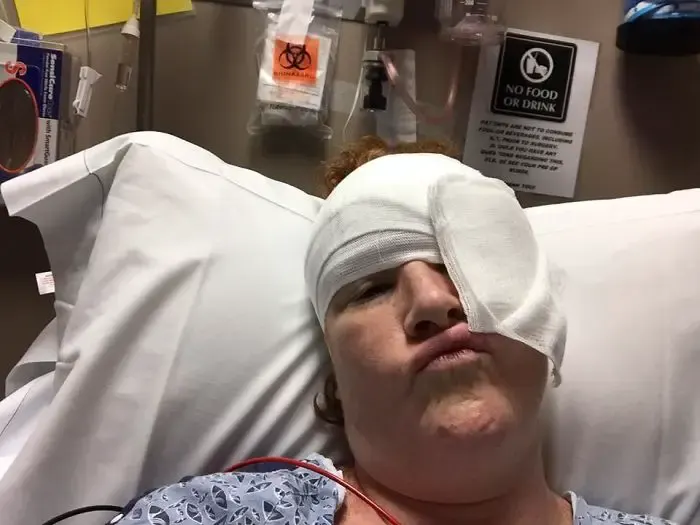
Image Credit: Bethany Gambardella-Greenway / Facebook
But 18 months later the mole was painful, and Bethany went to see a dermatologist.
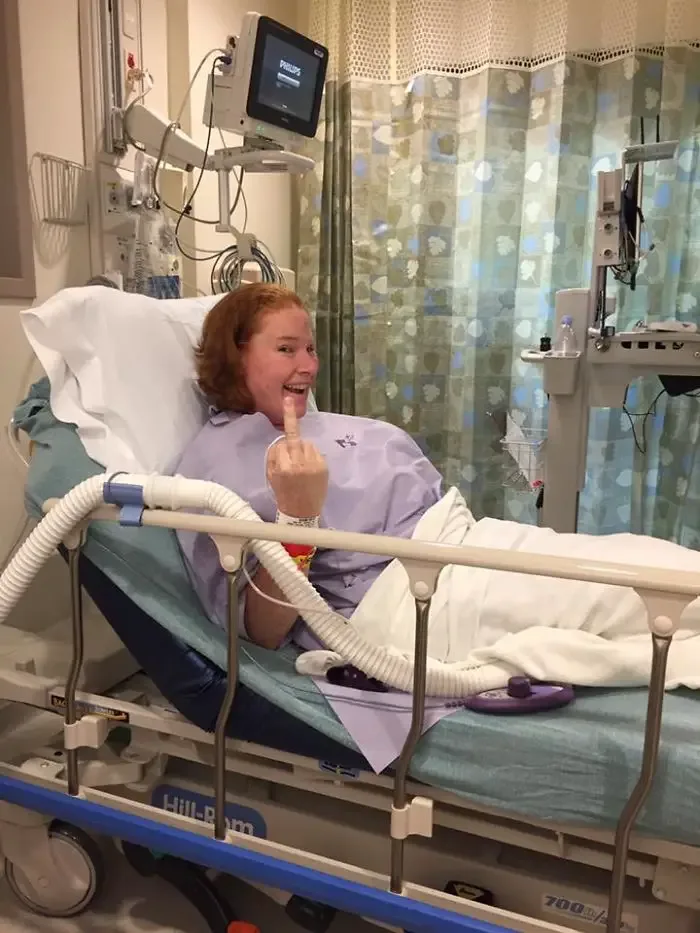
Image Credit: Bethany Gambardella-Greenway / Facebook
It wasn’t a liver spot, it was desmoplastic melanoma, an invasive as well as an aggressive form of skin cancer.
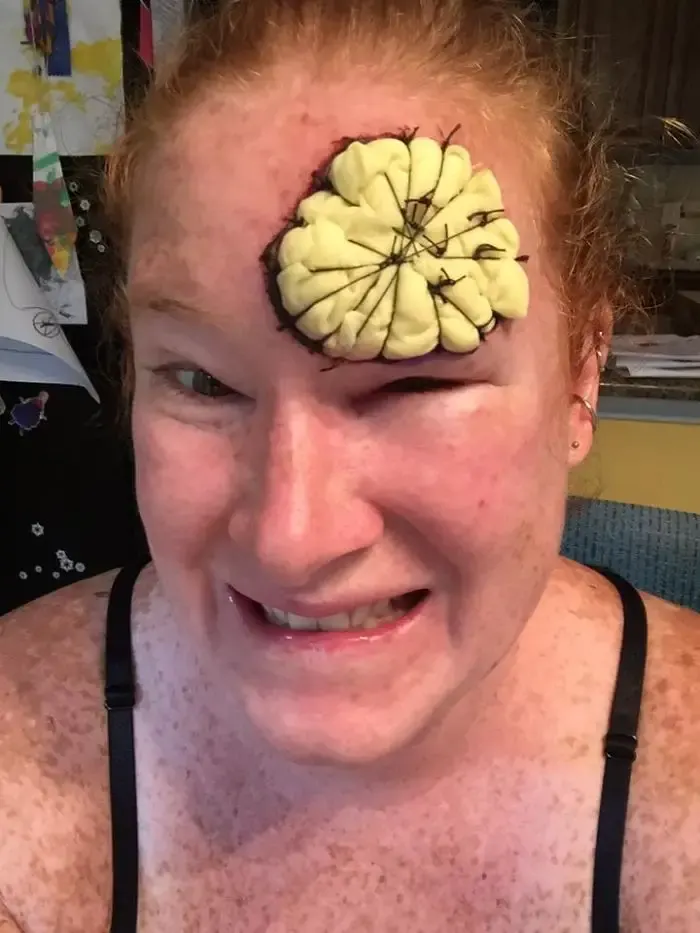
Image Credit: Bethany Gambardella-Greenway / Facebook
The mole was removed, but the cancer had spread to her lymph nodes and bones.
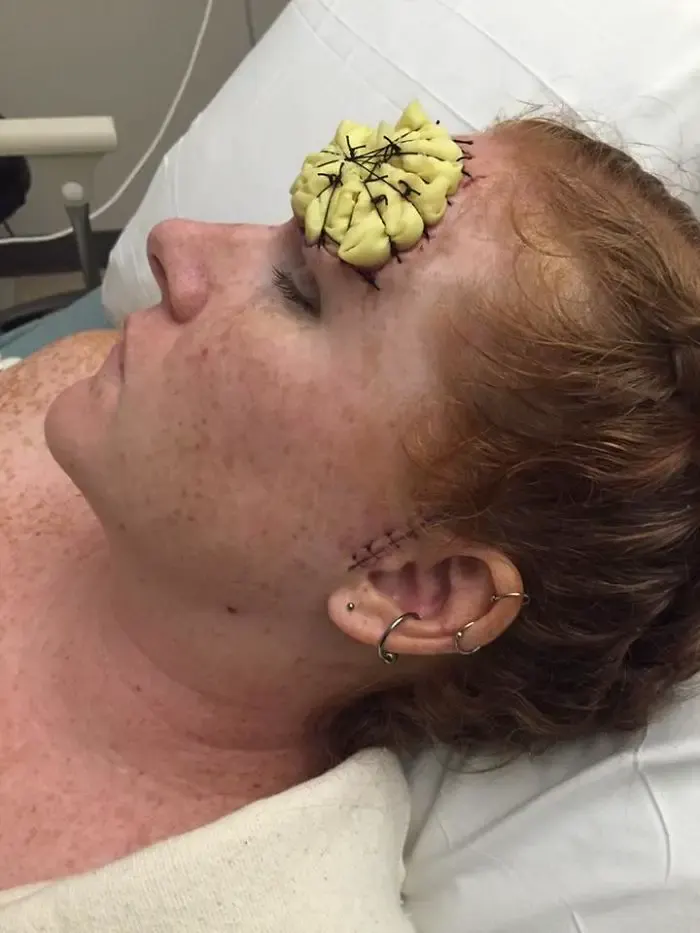
Image Credit: Bethany Gambardella-Greenway / Facebook
In 2016, Bethany, a mother of two, underwent immunotherapy.
Bethany is sharing her personal and painful journey, so other people don’t have to go through what she did.
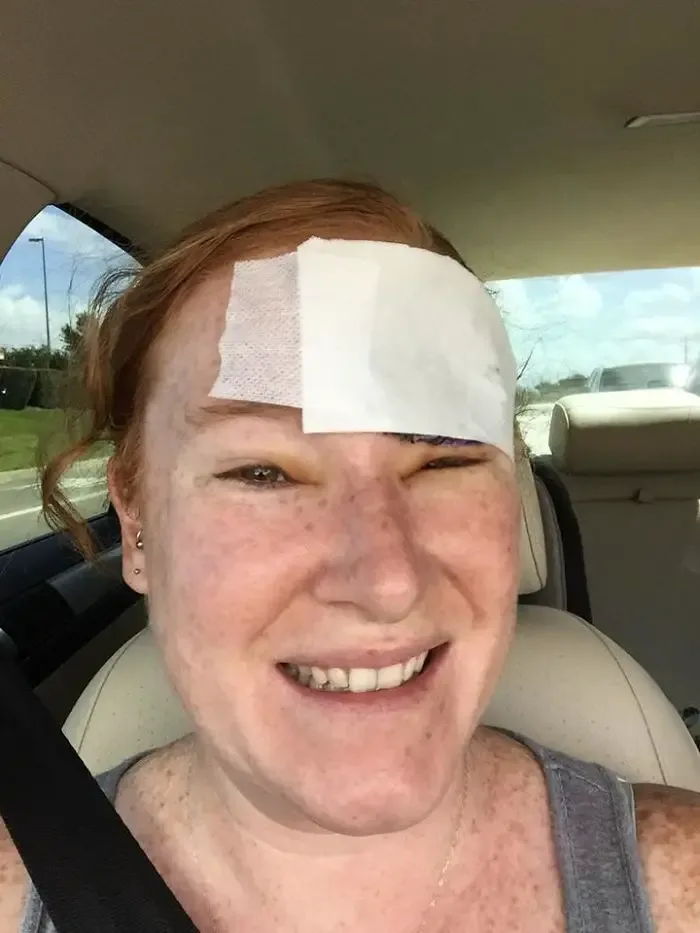
Image Credit: Bethany Gambardella-Greenway / Facebook
Bethany is encouraging people to stop going to tanning salons or sun bathing.
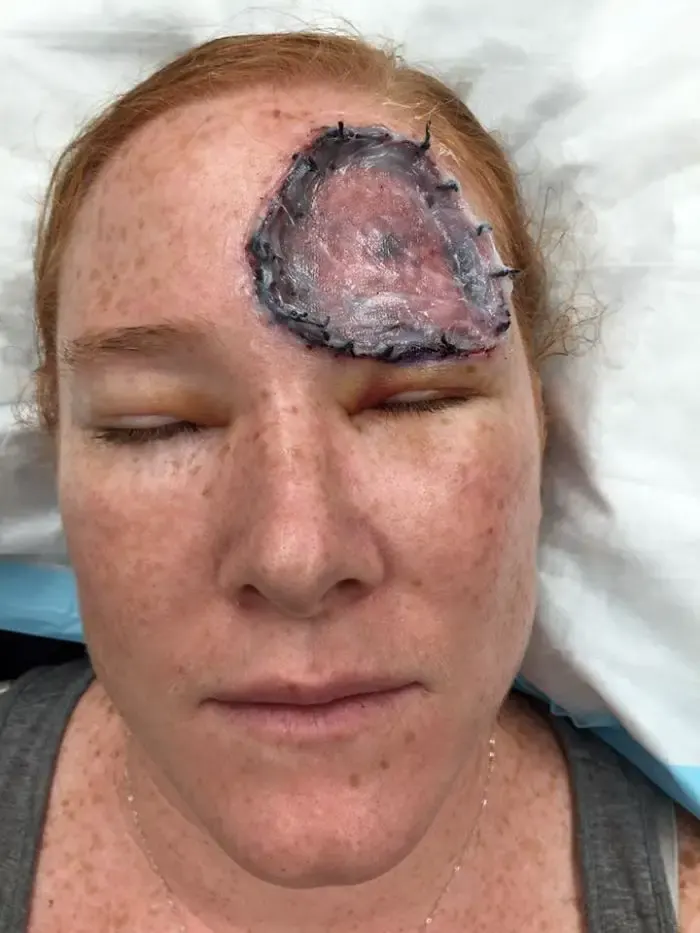
Image Credit: Bethany Gambardella-Greenway / Facebook
If you do find yourself outside in the sun, be sure to wear sunscreen.
Bethany says that a tan is really just damaged skin.
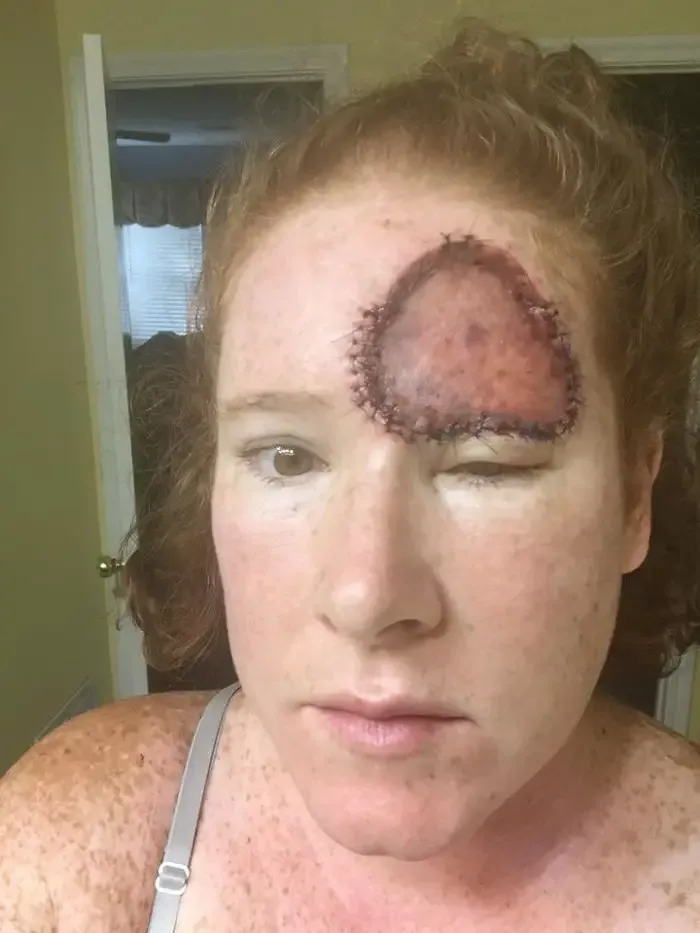
Image Credit: Bethany Gambardella-Greenway / Facebook
Bethany says that the radiation treatments were the worst, the pain was indescribable.
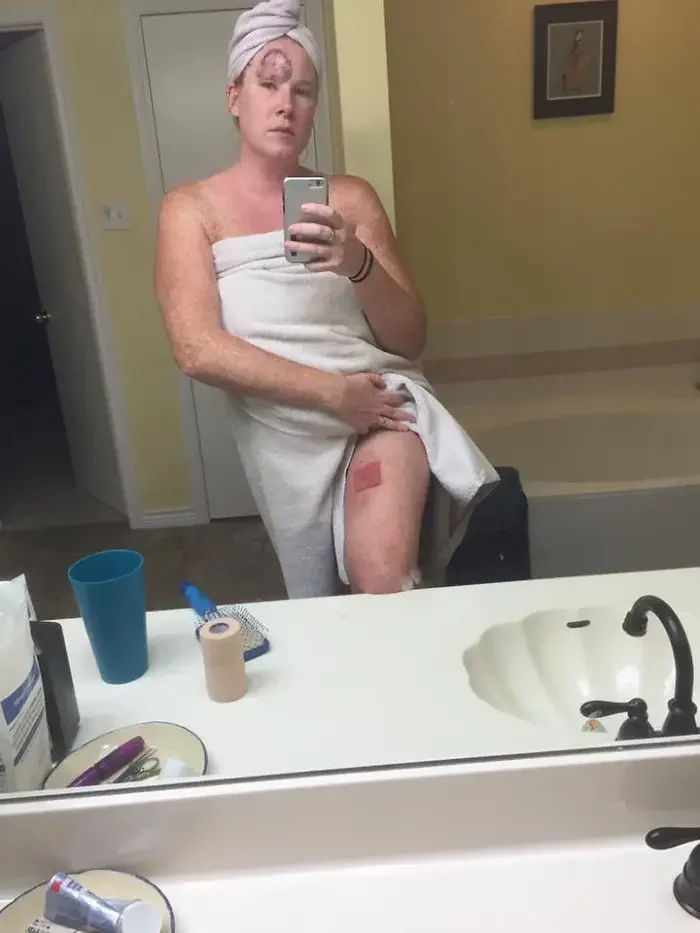
Image Credit: Bethany Gambardella-Greenway / Facebook
Her skin was covered in sores, her voice was hoarse, and she lost the ability to taste food.
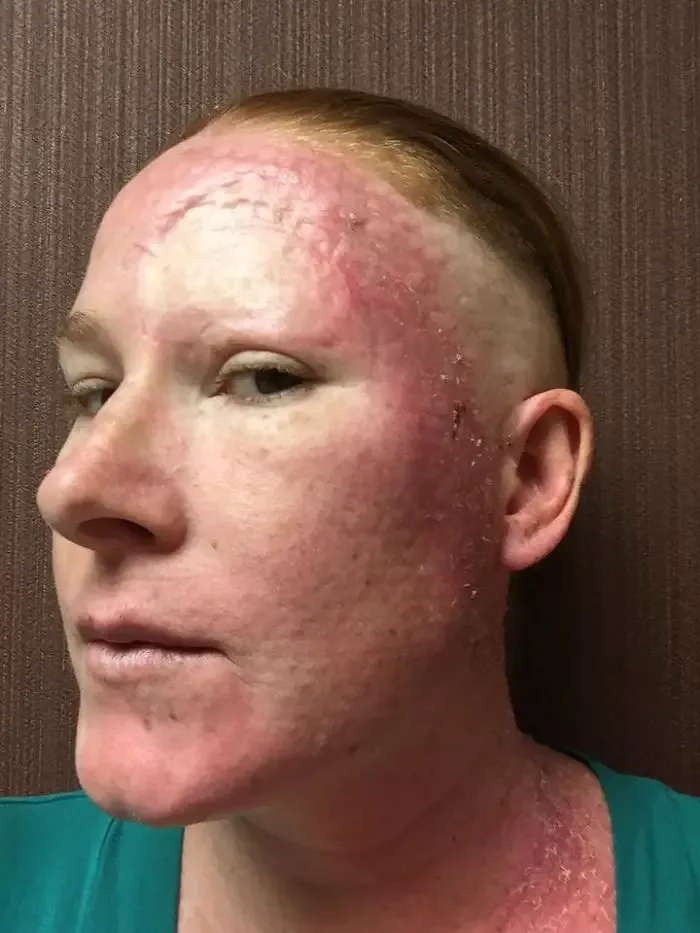
Image Credit: Bethany Gambardella-Greenway / Facebook
Three weeks into treatment, her hair started to fall out in the area of the treatment.
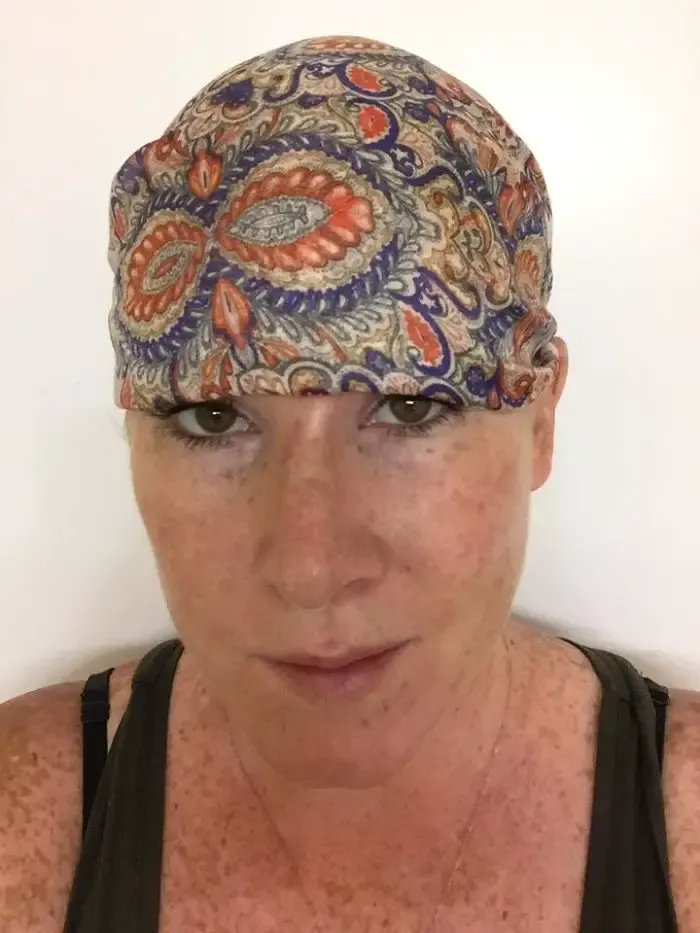
Image Credit: Bethany Gambardella-Greenway / Facebook
Bethany lost 40 pounds through the course of her treatment – her treatments are finished, and she is cancer free!
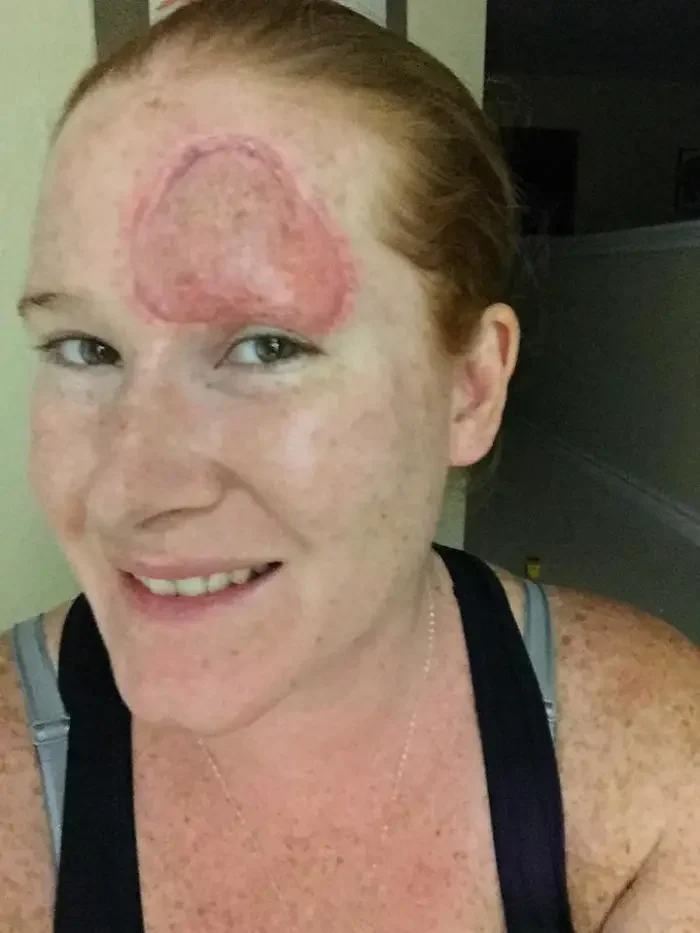
Image Credit: Bethany Gambardella-Greenway / Facebook
You should never ignore any change in an existing mole or when a new mole appears.
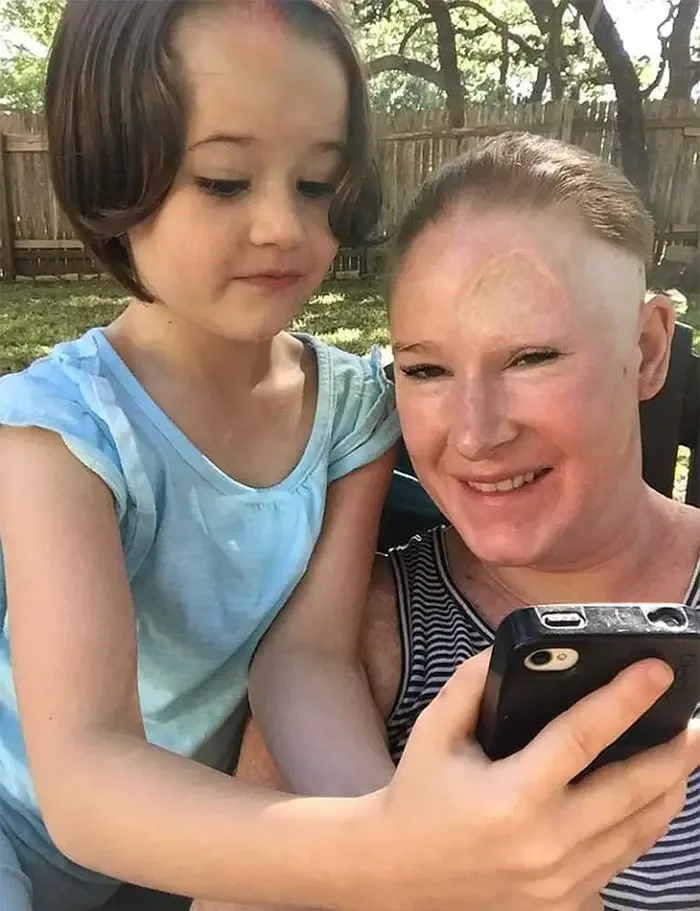
Image Credit: Bethany Gambardella-Greenway / Facebook
Please share this story with your friends!
It is important to get the word out about skin cancer – no one is immune!
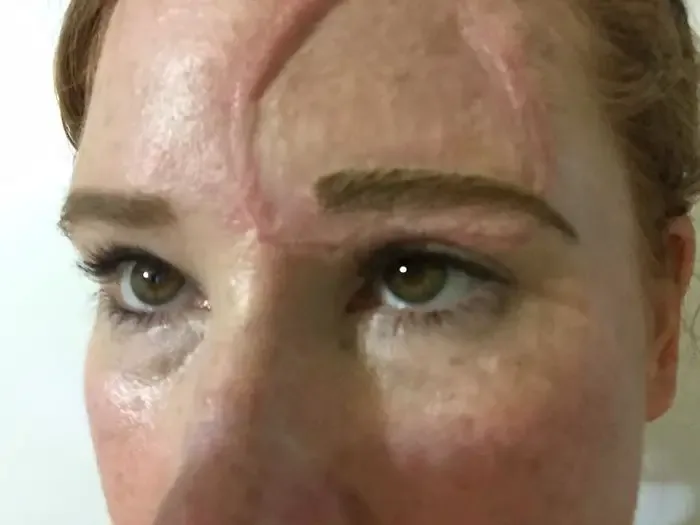
Image Credit: Bethany Gambardella-Greenway / Facebook
The Skin Cancer Foundation recommends people use a broad spectrum (UVA/UVB) sunscreen with an SPF of at least 15.
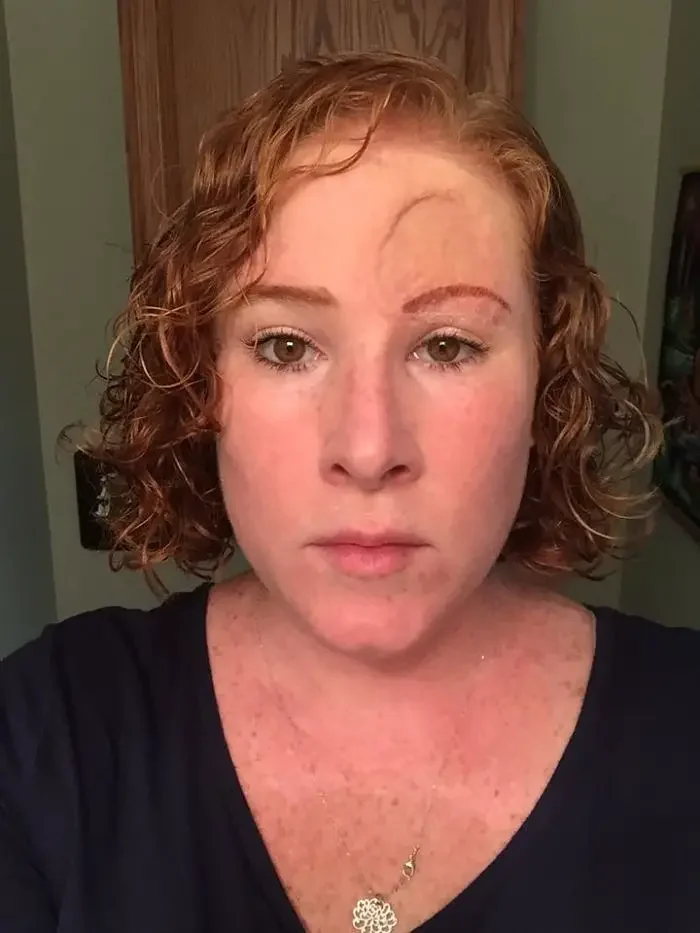
Image Credit: Bethany Gambardella-Greenway / Facebook
If you are outside every day, you should use a broad spectrum sunscreen that is waterproof sunscreen with an SPF of 30 or more.
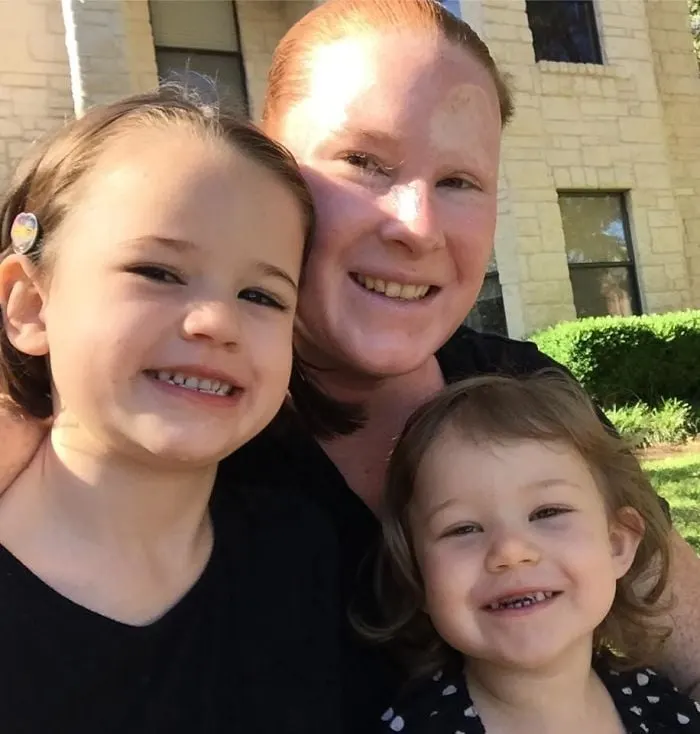
Image Credit: Bethany Gambardella-Greenway / Facebook
Early detection is important too, see your doctor yearly.
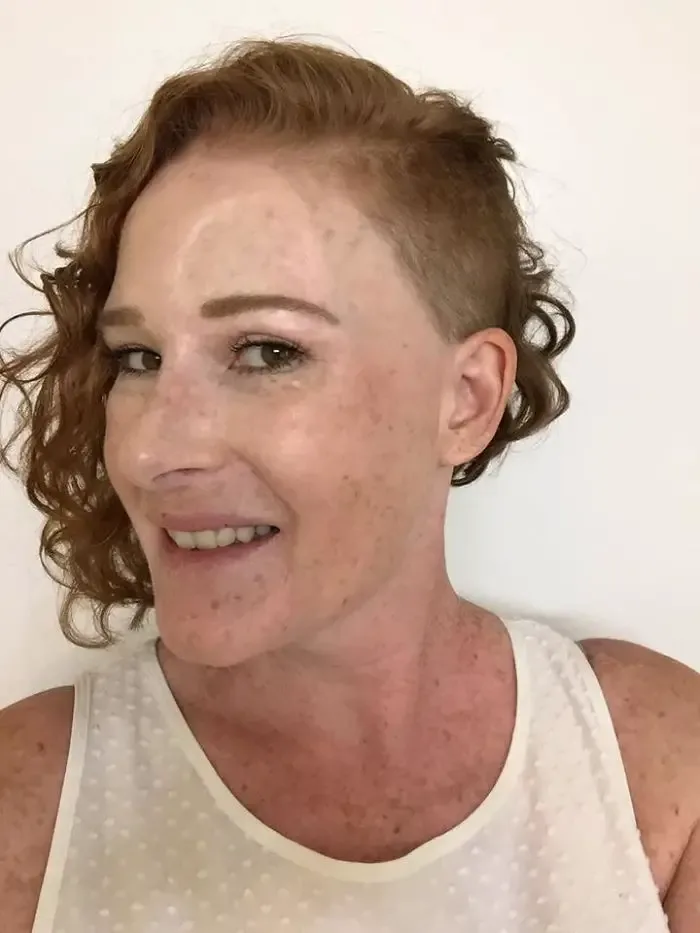
Image Credit: Bethany Gambardella-Greenway / Facebook
Share away, people.
